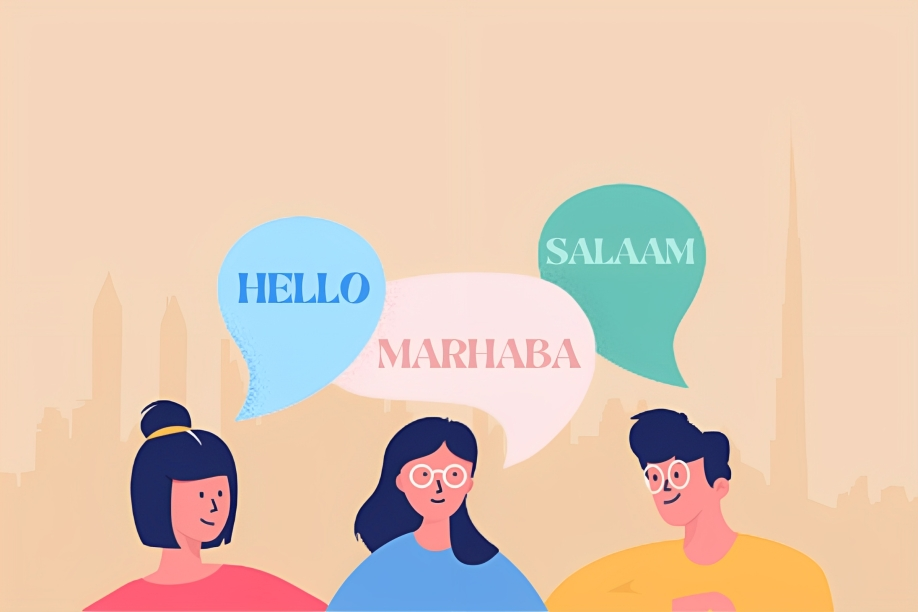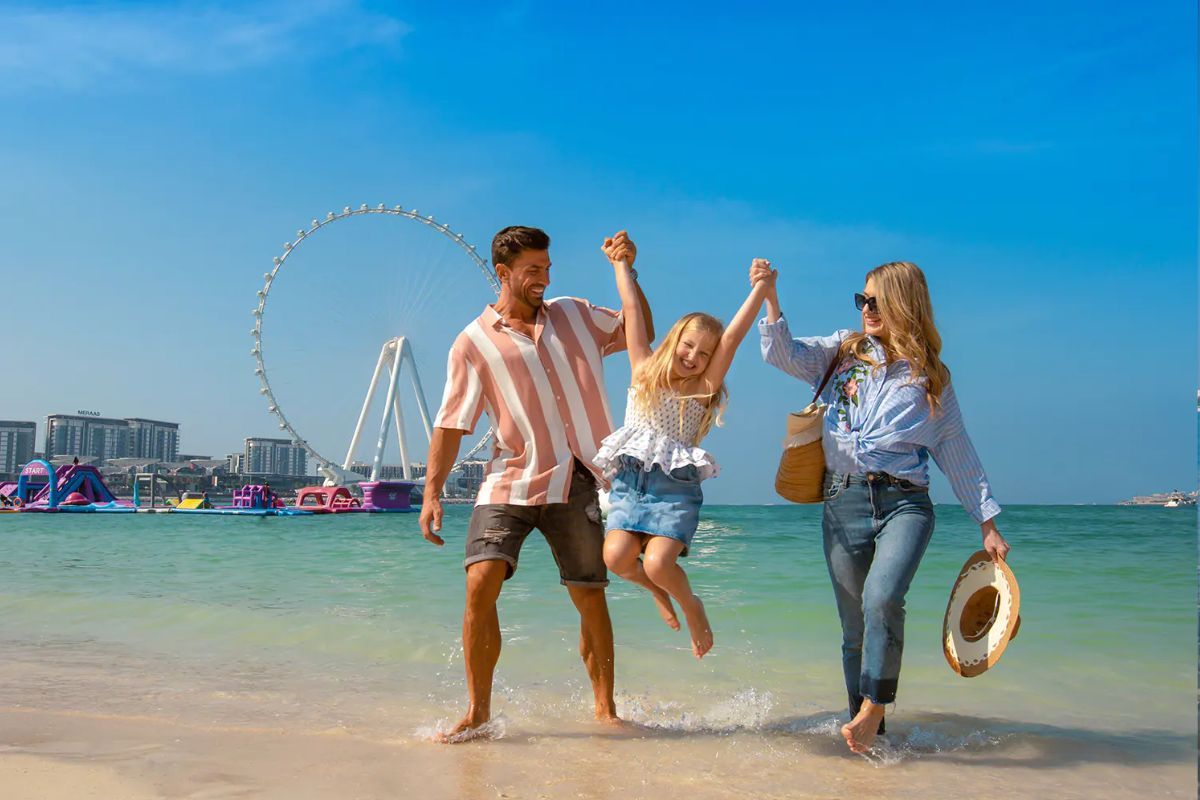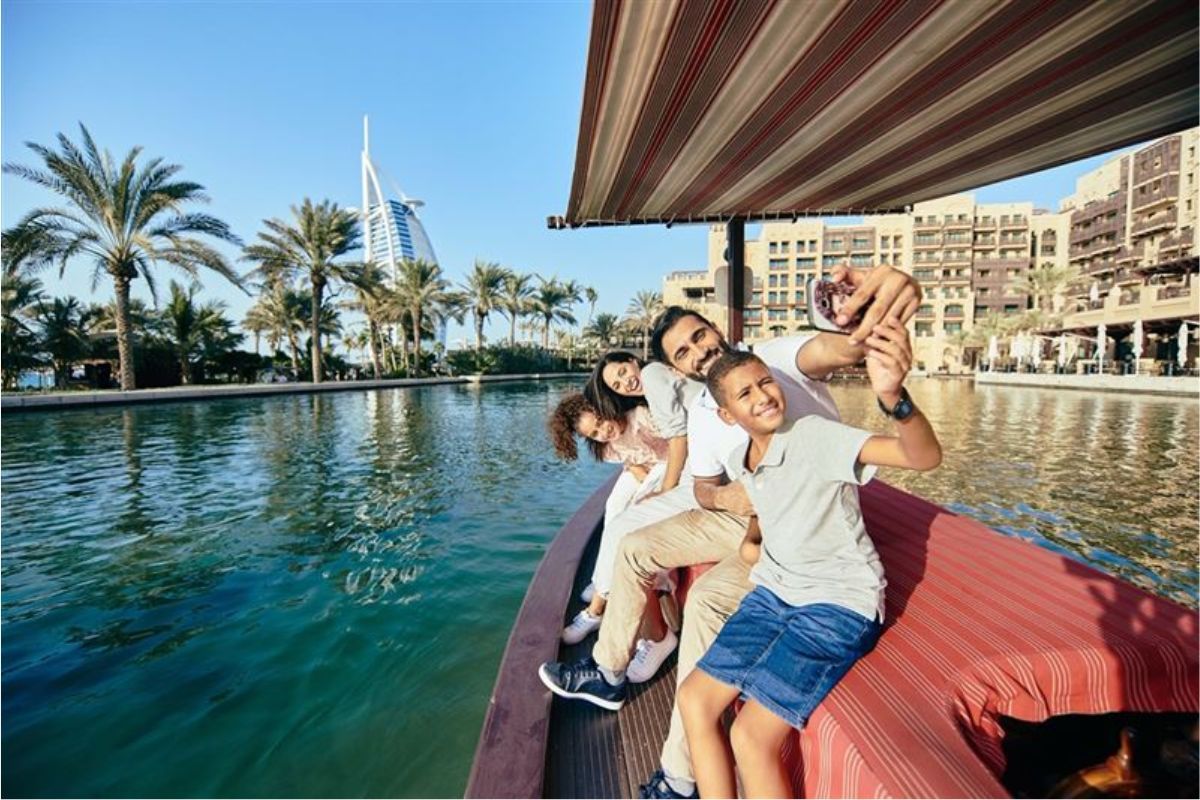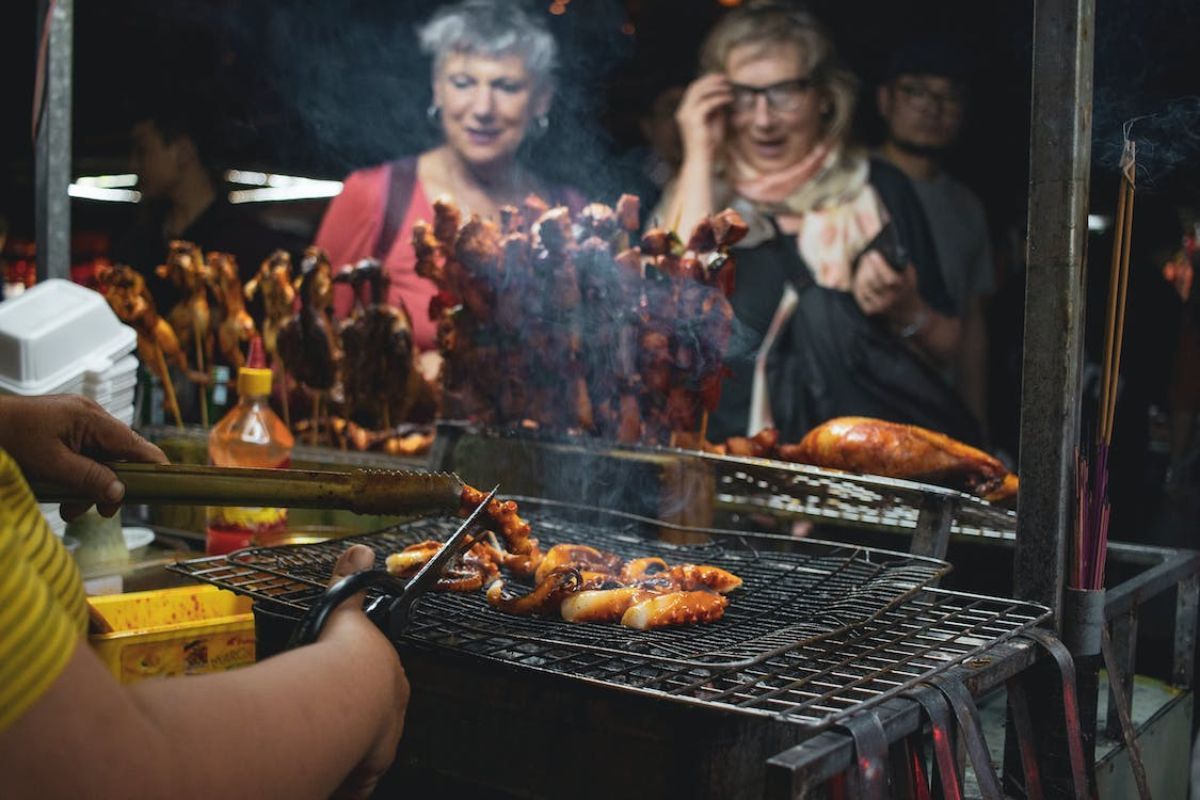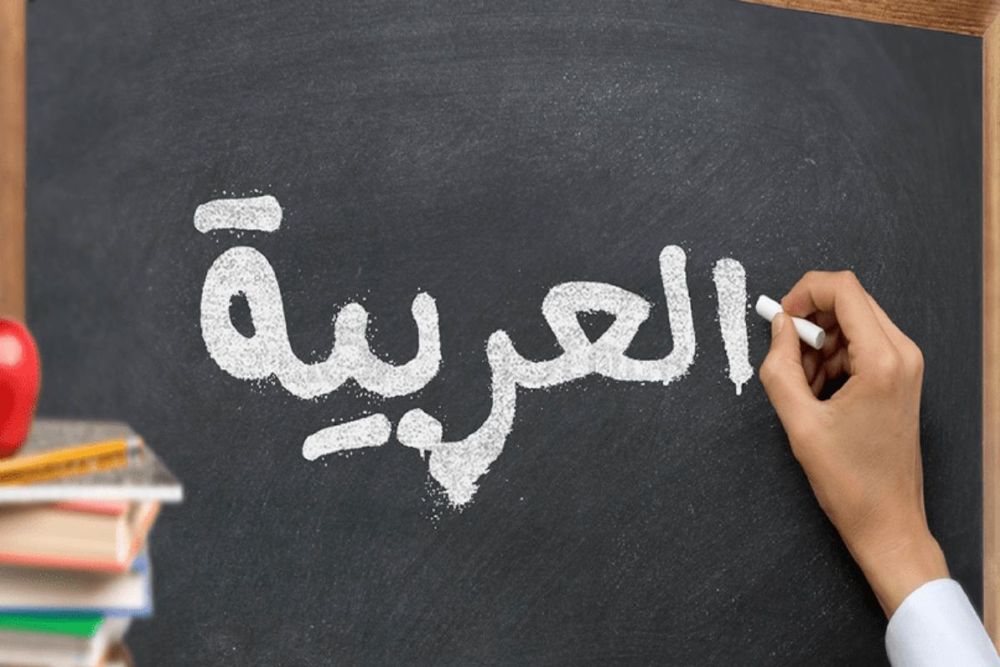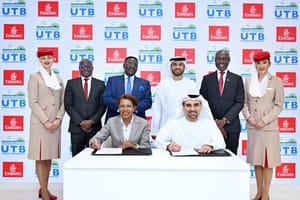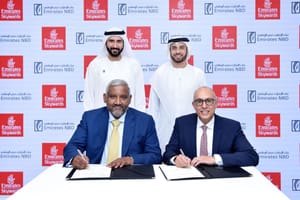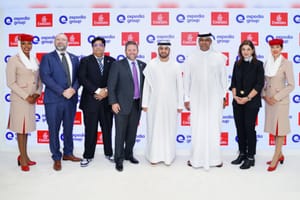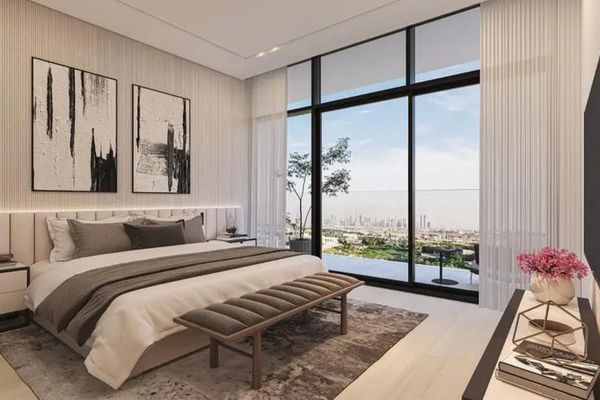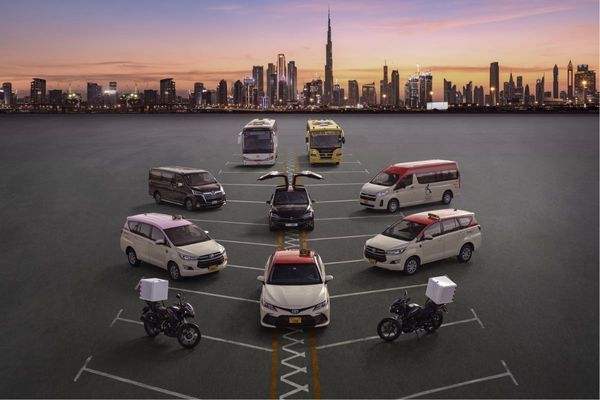When planning a trip to Dubai or considering a longer stay, acquainting yourself with basic Arabic words and phrases is not just beneficial; it's a bridge to a richer, more authentic experience.
Dubai is a melting pot of cultures and languages, with Arabic at its core. While English is prevalently spoken, especially in business and tourism sectors, understanding basic Arabic phrases enriches your experience, showing respect for the local customs and traditions. This knowledge becomes invaluable in daily interactions, from navigating markets and streets to forming deeper connections with the local community.
This article serves as a crucial guide for anyone looking to immerse themselves in the vibrant and diverse culture of Dubai through its language.
Greetings and Social Phrases

- Hello: Marhaba (مرحبا)
- Goodbye: "Ma'a al-salamah" (مع السلامة)
- Good Morning: "Sabah al-khair" (صباح الخير)
- Good Evening: "Masa' al-khair" (مساء الخير)
- How are you?: "Kayfa halak?" (كيف حالك؟) for a male, "Kayfa halik?" (كيف حالك؟) for a female
- I'm fine, thank you: "Ana bikhair, shukran" (أنا بخير، شكراً)
- Nice to meet you: "Sa'adt bi ilqa'ak" ( سعدت بلقأك)
- Welcome: "Ahlan wa sahlan" (أهلاً وسهلاً)
- It's a pleasure: "Tasharafna" (تشرفنا)
- Congratulations: "Mabrook" (مبروك)
- Have a nice day: "Atmanna lak yawman sa'eedan" (أتمنى لك يوماً سعيداً)
- Good luck: "Hazz sa'eed" (حظ سعيد)
- Please: "Min fadlak" (من فضلك) for speaking to a male, "Min fadlik" (من فضلك) for a female
- Thank You: "Shukran" (شكرا)
- Yes: "Na'am" (نعم)
- No: "La" (لا)
- Excuse me: "Afwan" (عفوا)
- Sorry: "Assif" (أسف)
Help and Assistance
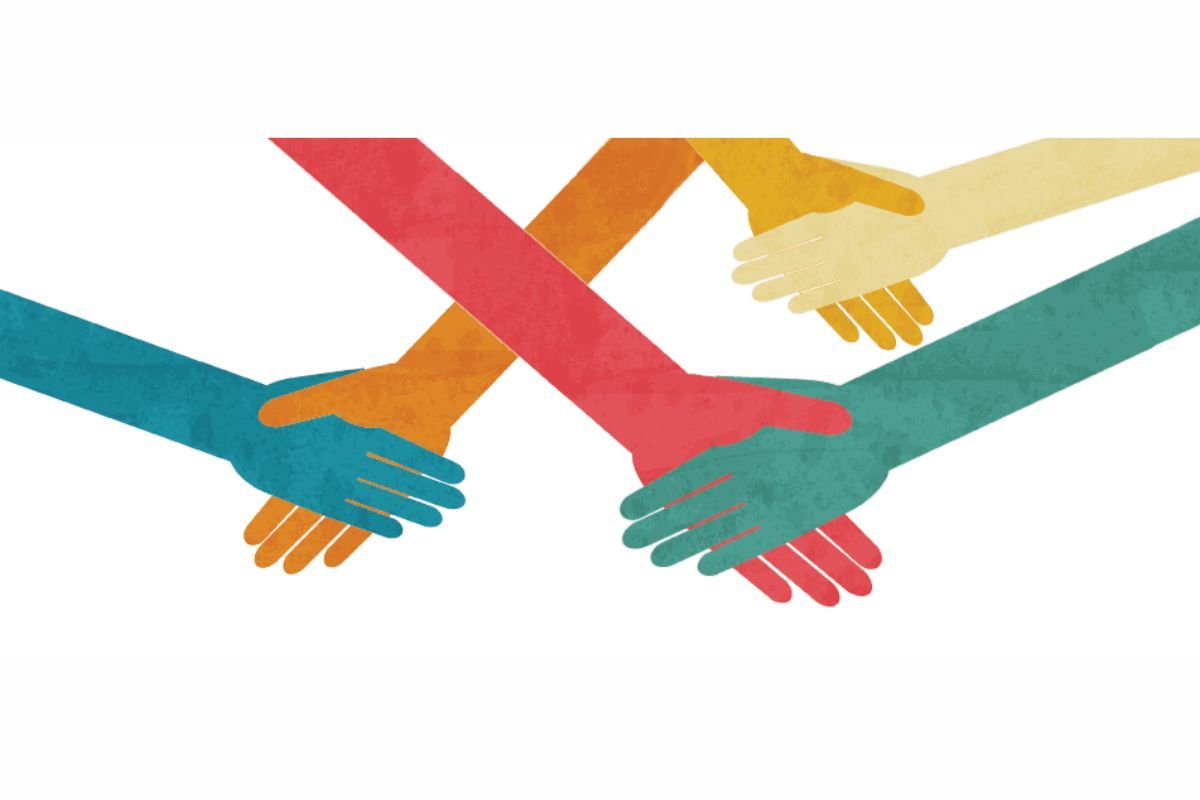
Basic Phrases for Assistance
- Can you help me?: "Hal be emkanek mosa'adati?" (هل بإمكانك مساعدتي؟)
- I need help: "Ahtaju ila musa'ada" (أحتاج إلى مساعدة)
- I don't understand: "La afham" (لا أفهم)
- I'm lost: "Ana da'ie'/da'ie'a" (أنا ضائع/ضائعة)
- Could you please repeat that?: "Hal yumkinuka an tu'eed dhalik?" (هل يمكنك أن تعيد ذلك؟)
- Where is the nearest...?: "Ayna aqrab...?" (أين أقرب...؟)
- How much does this cost?: "Bikam hatha?" (بكم هذا؟)
- Do you speak English?: "Hal tatakallam al-lugha al-Ingliziyya?" (هل تتكلم اللغة الإنجليزية؟)
Emergency Situations
- I need a doctor: "Ahtaju ila tabib" (أحتاج إلى طبيب)
- Call the police: "Itasal bil-shurta" (اتصل بالشرطة)
- I feel sick: "Asha'ur bi'l-marad" (أشعر بالمرض)
- Where is the hospital?: "Ayna al-mustashfa?" (أين المستشفى؟)
- I have lost my...: "Faqadt... (e.g., wallet, passport)" (فقدت...)
- I need a pharmacy: "Ahtaju ila saydaliya" (أحتاج إلى صيدلية)
General Information
- What time is it?: "Kam al-sa'ah?" (كم الساعة؟)
- Can I use your phone?: "Hal yumkinuni istikhdam hatifik?" (هل يمكنني استخدام هاتفك؟)
- Where can I buy...?: "Ayna yumkinuni shiraa'...?" (أين يمكنني شراء...؟)
- What is this?: "Ma hatha?" (ما هذا؟)
Dining and Food
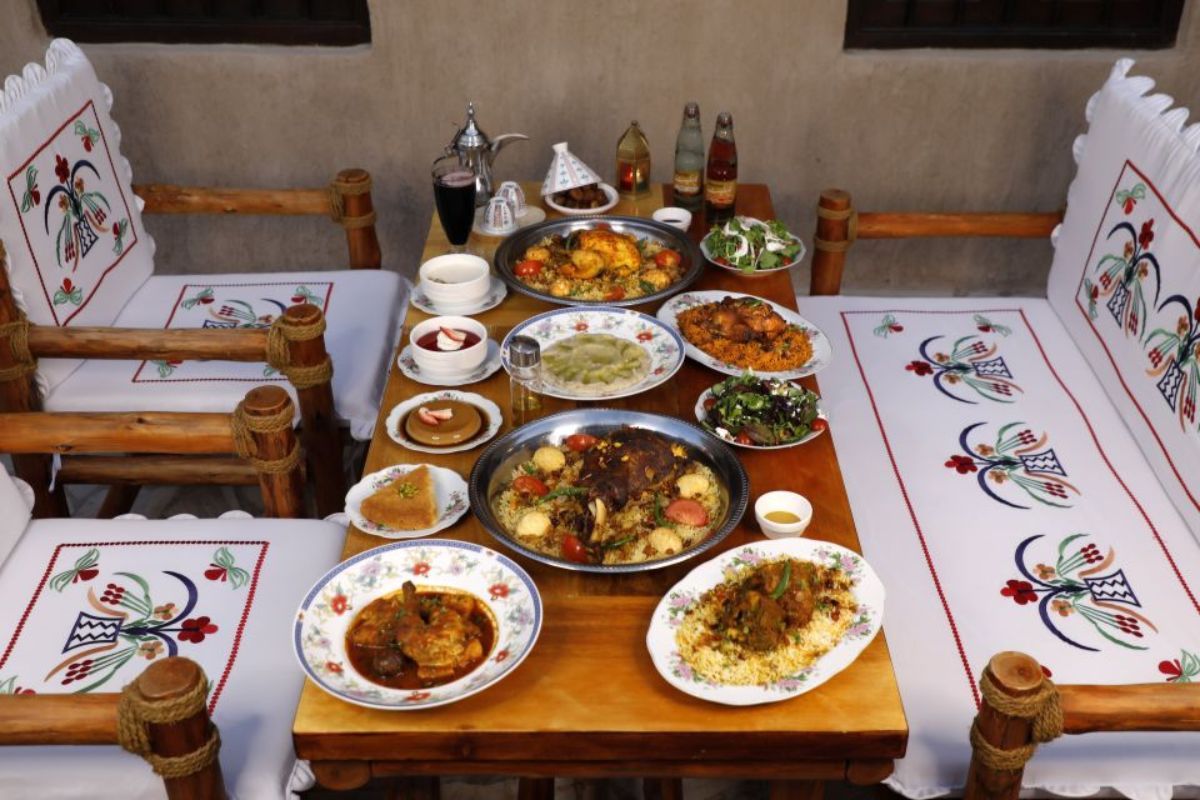
Basic Dining Phrases
- I would like to see the menu, please: "Ureed an ara qai'ma al-ta'am, min fadlik" (أريد أن أرى قائمة الطعام ، من فضلك)
- What do you recommend?: "Matha tansah?" (ماذا تنصح؟)
- I am vegetarian: "Ana nabati" (أنا نباتي)
- I am allergic to...: "Ladaya hassassia min.." (...لدي حساسية من)
- Can I have the bill, please?: "Al-hisab, min fadlik" (الحساب من فضلك)
Food and Drink Items
- Water: "Maa'" (ماء)
- Tea: "Shai" (شاي)
- Coffee: "Qahwa" (قهوة)
- Juice: "Aseer" (عصير)
- Chicken: "Dajaj" (دجاج)
- Meat: "Lahm" (لحم)
- Fish: "Samak" (سمك)
- Rice: "Ruz" (رز)
- Bread: "Khobz" (خبز)
- Salad: "Salata" (سلطة)
- Soup: "Shorba" (شوربة)
- Dessert: "Halawiyat" (حلويات)
Common Requests and Questions
- Is this spicy?: "Hal hatha har?" (هل هذا حار؟)
- Can I have water, please?: "Hal yumkinuni an ahsol 'ala maa', min fadlik?" (هل يمكنني أن أحصل على ماء ، من فضلك؟)
- More, please: "Akthar, min fadlik" (أكثر، من فضلك)
- Less, please: "Aqall, min fadlik" (أقل، من فضلك)
- This is delicious: "Hatha ladhidh" (هذا لذيذ)
- I am full, thank you: "Ana shaba'an, shukran" (أنا شبعان، شكراً)
- Bathroom: "Hammam" (حمام)
Restaurant and Café
- Waiter/Waitress: "Nadil/Nadila" (نادل/نادلة)
- Reservation: "Hajz" (حجز)
- Tip: "Bakshish" (بقشيش)
- To eat in: "Akul huna" (آكل هنا)
- To take away: "Akul barra" (آكل برا)
Shopping and Services
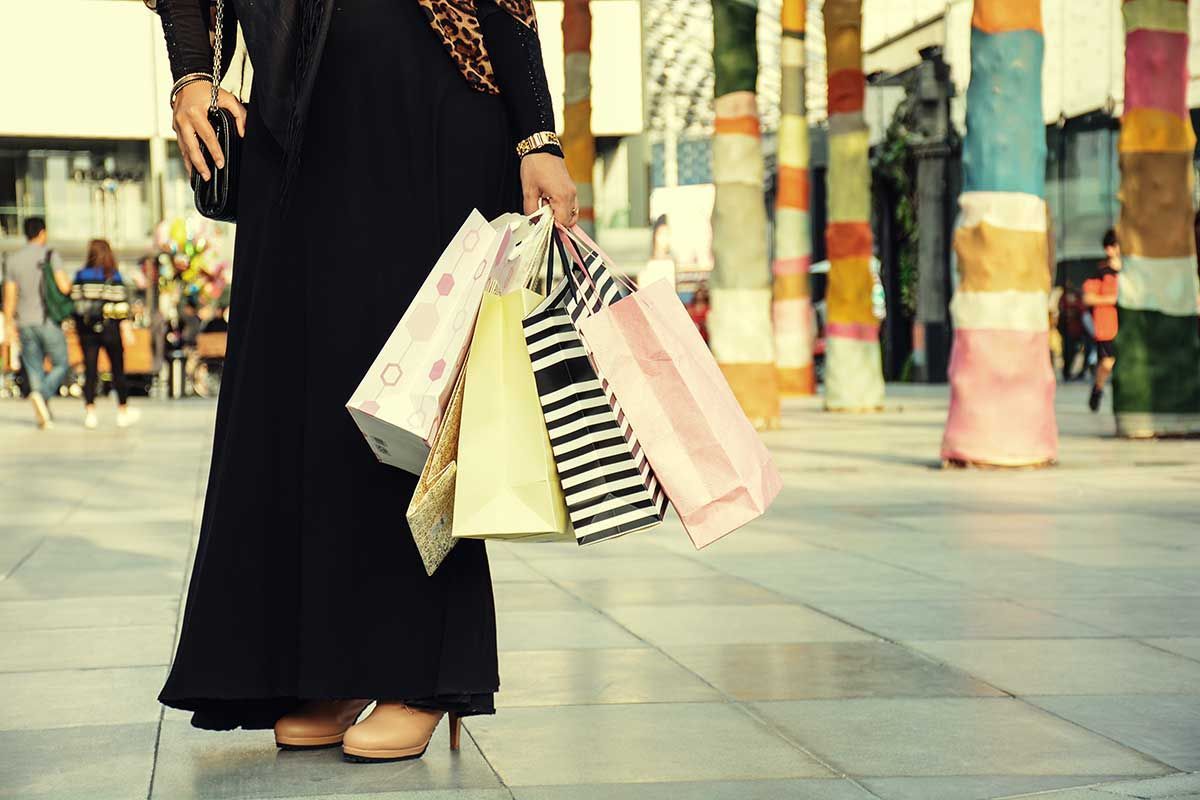
Shopping Terms
- Shop/Store: "Dukkan" (دكان)
- Market: "Souq" (سوق)
- Price: "S'ar" (سعر)
- Discount: "Khasm" (خصم)
- Size: "Hajm" (حجم)
- Large: "Kabeer" (كبير)
- Medium: "Mutawasat" (متوسط)
- Small: "Sagheer" (صغير)
- Colour: "Lawn" (لون)
- Clothes: "Malabis" (ملابس)
- Shoes: "A'hdhiya" (أحذية)
Bargaining Phrases
- How much is this?: "Bikam hatha?" (بكم هذا؟)
- Can you reduce the price?: "Hal yumkinuk khafd al-s'ar?" (هل يمكنك خفض السعر؟)
- It's too expensive!: "Hatha ghali jiddan!" (!هذا غالي جدا)
- Do you have anything cheaper?: "Hal 'indak shay'an arkhass?" (هل عندك شيء أرخص؟)
- I am looking for...: "Ana abhath 'an..." (أنا أبحث عن...)
- I will buy it for...: "Sa ashtarih bi..." (سأشتريه ب...)
- That's more than I can afford: "Hatha akthar mimma aqdar 'ala daf'o" (هذا أكثر مما اقدر على دفعه)
- Is there a discount?: "Hal yujad khasm?" (هل يوجد خصم؟)
Service-Related Phrases
- I need...: "Ahtaju ila..." (أحتاج إلى...)
- Do you have...?: "Hal ladayka...?" (هل لديك...؟)
- Can you help me?: "Hal be emkanek bi mosa'adati?" (هل بإمكانك بمساعدتي؟)
- Where can I find...?: "Ayna ajid...?" (أين أجد...؟)
- Do you accept credit cards?: "Hal taqbaloon al-bitaqat al'i'timadiyya?" (هل تقبلون البطاقات الائتمانية؟)
- I am just looking, thank you: "Ana faqat anzur, shukran" (أنا فقط أنظر، شكراً)
- Can this be delivered?: "Hal yumkin tawsil hadha?" (هل يمكن توصيل هذا؟)
- I want to return this: "Ureed an arud hadha" (أريد أن أرد هذا)
- Where can I exchange money?: "Ayna yumkinuni tabdeel al-mal?" (أين يمكنني تبديل المال؟)
- I'm looking for a gift: "Abhath 'an hadiyya" (أبحث عن هدية)
- Can I try this on?: "Hal yumkinuni tajribat hatha?" (هل يمكنني تجريبة هذا؟)
Directions and Transportation
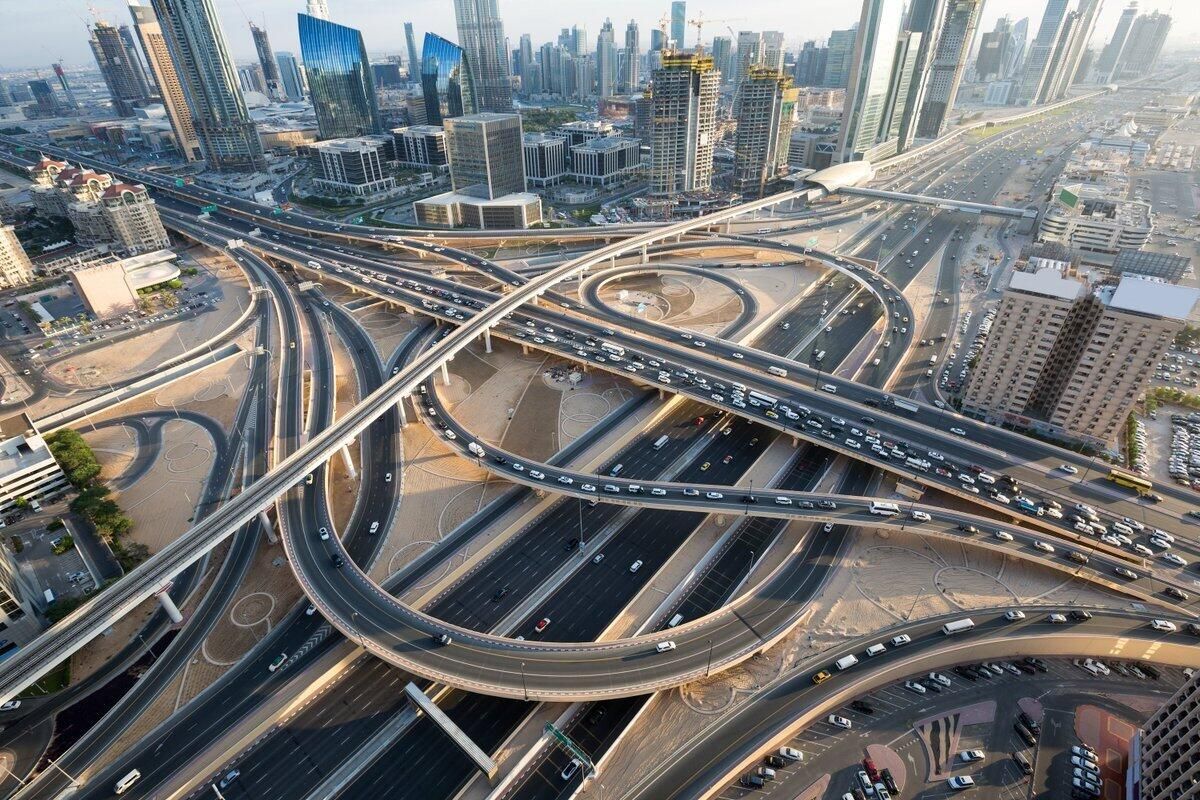
Basic Directions
- Left: "Yasar" (يسار)
- Right: "Yameen" (يمين)
- Straight: "Mustaqeem" (مستقيم)
- Back / Behind: "Khalf" (خلف)
- Front / Ahead: "Amam" (أمام)
- Above / Over: "Fawq" (فوق)
- Below / Under: "Taht" (تحت)
- Inside: "Dakhil" (داخل)
- Outside: "Kharij" (خارج)
- Near: "Qareeb" (قريب)
- Far: "Baeed" (بعيد)
Transportation Terms
- Car: "Sayara" (سيارة)
- Bus: "Bas" (باص)
- Taxi: "Taxi" (تاكسي)
- Train: "Qitar" (قطار)
- Airport: "Matar" (مطار)
- Station: "Mahatta" (محطة)
- Ticket: "Tathkara" (تذكرة)
- Flight: "Rihla" (رحلة)
Asking for Directions
- Where is...?: "Ayna...?" (أين...؟)
- How can I get to...?: "Kayfa astati'u an adhhab ila...?" (كيف أستطيع أن أذهب إلى...؟)
- Is this the way to...?: "Hal hadha huwa al-tareeq ila...?" (هل هذا هو الطريق إلى...؟)
- Can you show me on the map?: "Hal yumkinuk an turini 'alaa al-kharita?" (هل يمكنك أن تريني على الخريطة؟)
- How far is...?: "Kam al-masafa ila...?" (كم المسافة إلى...؟)
- Is it near?: "Hal huwa qareeb?" (هل هو قريب؟)
- Is it far?: "Hal huwa baeed?" (هل هو بعيد؟)
In Case of Transportation
- I need a taxi.: "Ahtaju ila taxi." (أحتاج إلى تاكسي.)
- When does the bus/train leave?: "Mata yughader al-bas/qitar?" (متى يغادر الباص/القطار؟)
- Where is the bus/train station?: "Ayna mahattat al-bas/qitar?" (أين محطة الباص/القطار؟)
- I would like to buy a ticket.: "Ureed an ashtari tathkara." (أريد أن أستري تذكرة.)
Stay at Hotel/Resort
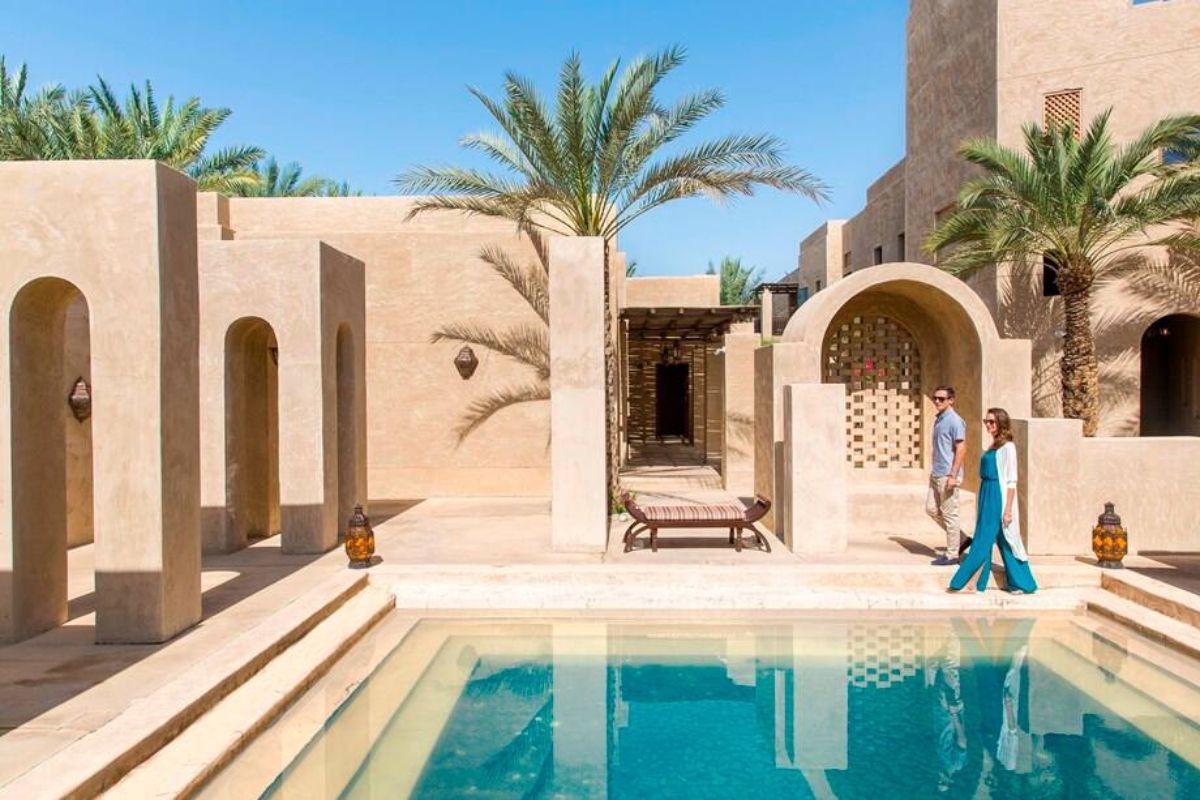
Basic Hotel Phrases
- I have a reservation: "Ladiya hajz" (لدي حجز)
- Do you have a room available?: "Hal ladaykum ghurfa mawjooda?" (هل لديكم غرفة موجودة؟)
- I would like a single/double room: "Ureed ghurfa li wahid/li ithnain" (أريد غرفة لواحد/لاثنين)
- Can I see the room first?: "Hal yumkinuni r'ayat al-ghurfa awalan?" (هل يمكنني رؤية الغرفة أولاً؟)
- How much per night?: "Kam al-s'ar li kull layla?" (كم السعر لكل ليلة؟)
- Is breakfast included?: "Hal yashmal al-futr?" (هل يشمل الفطور؟)
- What time is check-in/check-out?: "Mata waqt al-dhukul/al-khuruj?" (متى وقت الدخول/الخروج؟)
- Can I have a wake-up call?: "Hal yumkinuni al husul 'ala khidmat nida' al-istayqaz?" (هل يمكنني الحصول على خدمة نداء الاستيقاظ؟)
Room Facilities and Requests
- The air conditioning is not working: "Al-mukayif la yu'amal" (المكيف لا يعمل)
- Can I have more towels/blankets?: "Hal yumkinuni al husul ala fowat/bataniyat akthar?" (هل يمكنني الحصول على فوط/بطانيات اكثر؟)
- Is there Wi-Fi here?: "Hal yujad Wi-Fi hunaa?" (هل يوجد واي فاي هنا؟)
- The room key, please: "Miftah al-ghurfa, min fadlik" (مفتاح الغرفة، من فضلك)
- Is the water drinkable?: "Hal al-maa' qabil li al-shurb?" (هل الماء قابل للشرب؟)
- Can I have room service?: "Hal yumkinuni an ahsul ala khidmat al ghuruf?" (هل يمكنني أن أحصل على خدمة الغرف؟)
At the Hotel
- Where is the elevator?: "Ayna al-mis'ad?" (أين المصعد؟)
- Where is the restaurant/swimming pool/gym?: "Ayna al-mat'am/al-hawd al-sabahi/al-nadhi al-riyadi?" (أين المطعم/الحوض السباحي/النادي الرياضي؟)
- Can you call a taxi for me?: "Hal yumkinuk talab taxi li?" (هل يمكنك طلب تاكسي لي؟)
- I need a doctor: "Ahtaju ila tabib" (أحتاج إلى طبيب)
- Can you recommend a good restaurant/tourist attraction?: "Hal yumkinuk tawsiyat mat'am/makan sayahi jayid?" (هل يمكنك توصية مطعم/مكان سياحي جيد؟)
Complaints and Issues
- I would like to change my room: "Ureed taghyeer ghurfati" (أريد تغيير غرفتي)
- The room is too noisy/cold/hot: "Al-ghurfa muz'ijah/baridah/harrah jiddan " (الغرفة مزعجة/باردة/حارة جداً )
- I lost my room key: "Faqadt miftah ghurfati" (فقدت مفتاح غرفتي)
Meaning of a few commonly used Arabic greetings and phrases:
- Assalam Alaikum (السلام عليكم): A formal greeting meaning "Peace be upon you".
- Walaikum Assalam (وعليكم السلام): The response to Assalam Alaikum, meaning "...and Peace be upon you too".
- Khallas (خلاص): Means "finished", is also used to say "stop", "end", or "enough". Versatile in various contexts.
- Maafi Mushkila (مافي مشكلة): Translates to "no problem", used in responses to thanks or requests.
- Marhaba (مرحبا): Used for greeting groups, meaning "Hello and Welcome". The reply is "Marhabten" (مرحبتين).
- Kifak (كيفَك): A common phrase asking "How are you?". Replies vary based on the person's state.
- Sabaho (صباحو): Equivalent to "Good Morning". Variations include "Sabah El Kheir" (صباح الخير) and "Sabah Al Noor" (صباح النور).
- Naharak Saeed (نهارك سعيد): Used to wish someone a "happy day".
- Salam (سلام): A standard salutation meaning "peace", often used in Muslim gatherings.
- Kayfa Haluk (كيف حالك): Another way to ask "How are you?" with variations based on the number and gender of people.
- Ma'salamah (مع السلامة): Means "goodbye".
- Sabah Al-Ward (صباح الورد): A pleasant morning greeting meaning "May you have a flower-like morning".
- Allah Maak (الله معك): A phrase expressing sympathy or support, meaning "Allah is with you".
- Habeebi/Habeebti (حبيبي/حبيبتي): "My love", used both formally and informally, similar to "buddy" or "my dear".
- Insha'Allah (إن شاء الله): "God willing" or "If God wills it", frequently used in conversations.
- Masha'Allah (ما شاء الله): Often used in admiration or praise, meaning "God has willed it".
- Ahlan Wa Sahlan (أهلاً وسهلاً): A welcoming phrase, meaning "welcome", used when welcoming someone to a place.
- Shukran (شكراً): Used to say "Thank you" or "Thanks", and "La, shukran" for "No, thanks".
- Mabrook (مبروك): "Congratulations".
- La Afham (لا أفهم): Useful for expressing "I don't understand".
- Min Fadlak/Min Fadlik (من فضلك/من فضلكِ): "Please", with a slight pronunciation variation for addressing females.
In conclusion, familiarizing yourself with basic Arabic words and phrases is not just about overcoming the language barrier, but it's also a gesture of cultural respect and curiosity. While Dubai's cosmopolitan nature means English is widely spoken, knowing Arabic phrases will enrich your experience, allowing you to connect more deeply with locals and their culture.
Remember, every attempt to speak Arabic is usually met with appreciation and can often lead to memorable interactions and a deeper understanding of the Emirati way of life.
Also Read:
